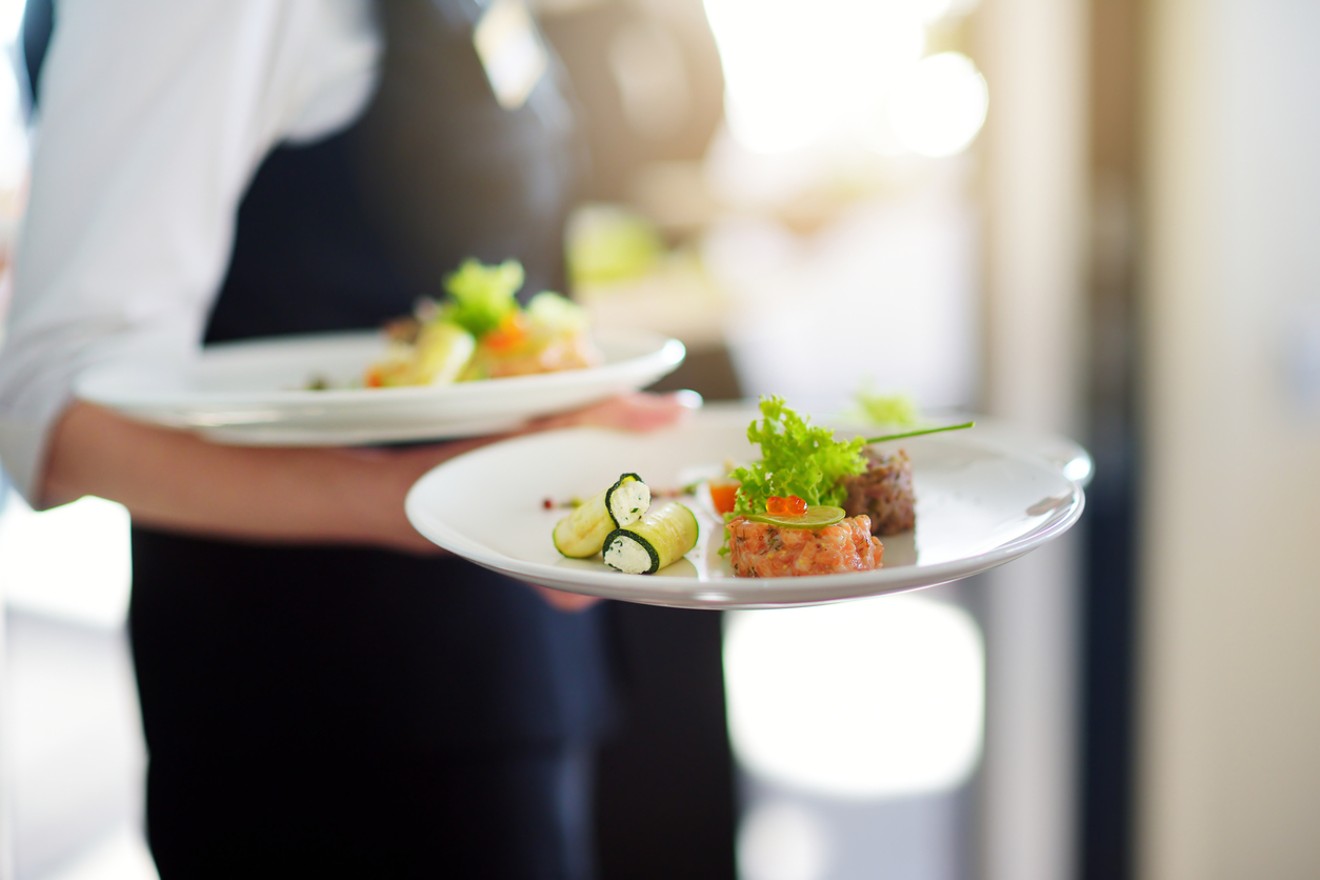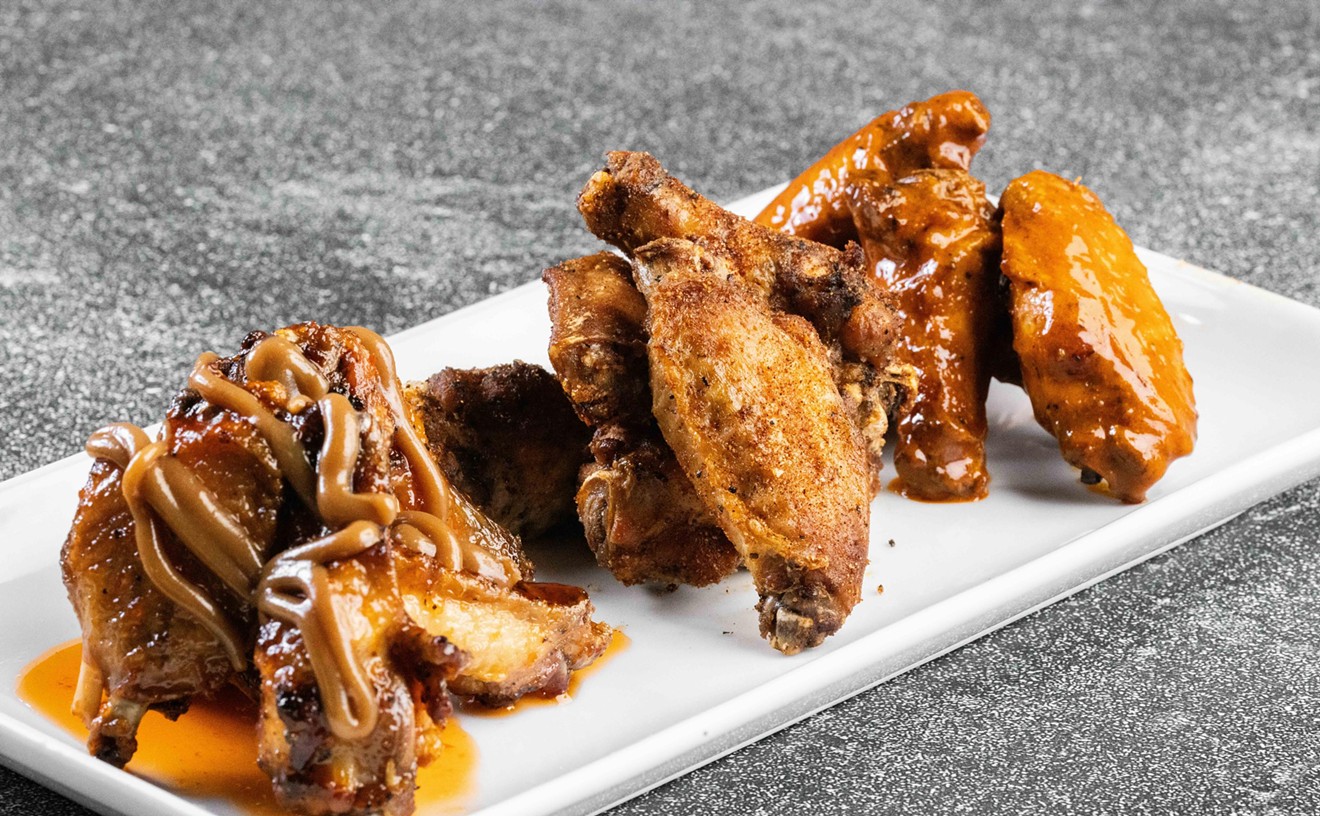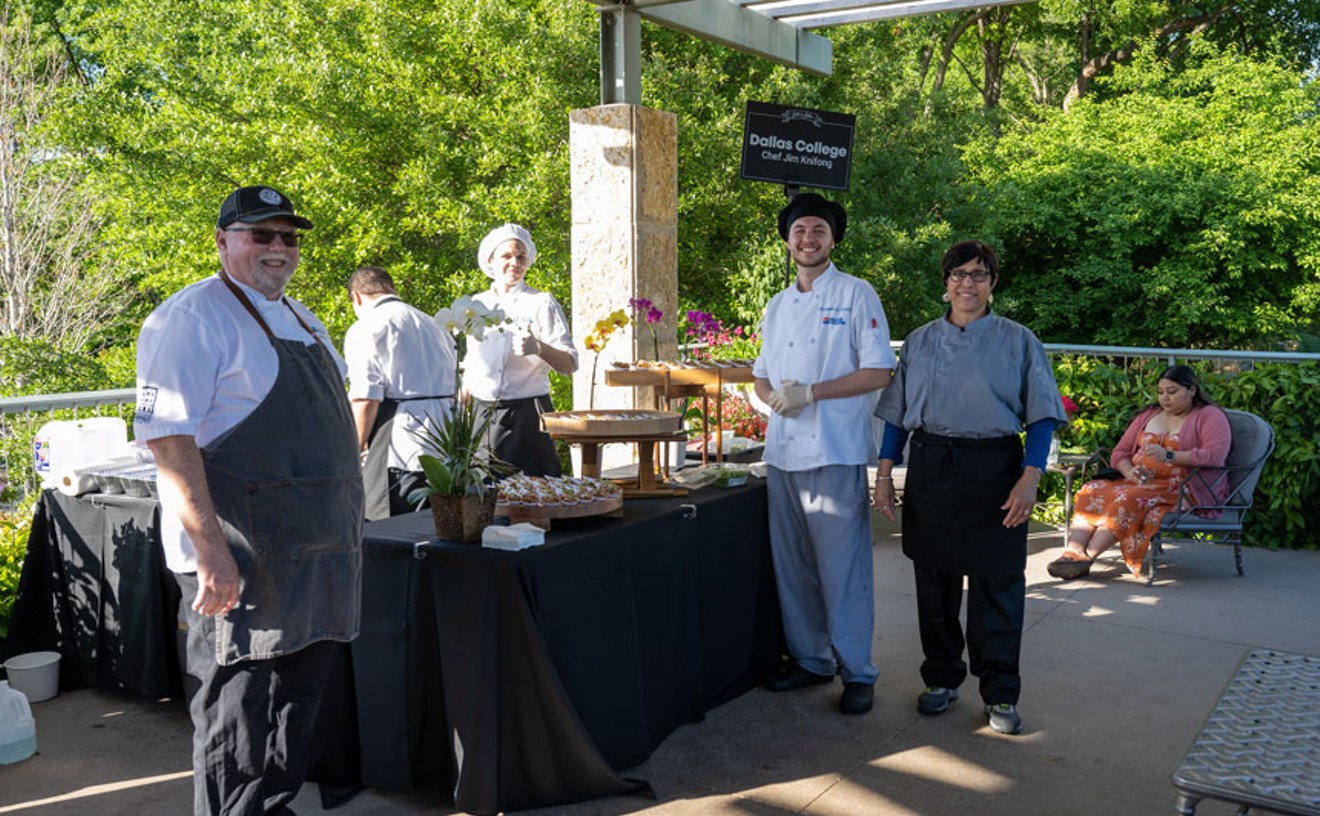I hope that we can all agree on this. A server who treats a woman with condescension is doing his job badly. More broadly, a server who treats customers differently based on sex, sexual orientation or race is failing the basic standard of hospitality.
I’m a male food critic, but I’ve observed plenty of sexist service in Dallas, and I nearly always mention it in the restaurant’s review. At V-Eats Modern Vegan, a male waiter suggested, without our asking, that I order a stiff whiskey cocktail called the Jack Ruby and that my girlfriend try a pink punch with edible flowers floating on top. That waiter placed the bill not just in front of me, but directly into my hand.
Recently, visiting a restaurant for fun, we endured a male waiter who gave a lengthy speech congratulating my female companion on the (apparently unladylike) way she cleaned her plate. Most of the Observer’s other food writers are women, and they all have experience with men at restaurants being condescending, flippant or rude, or focusing their attention on the sole male diner at the table rather than acknowledging that most of the table’s food and wine orders are coming from the woman seated across from him.
Eve Hill-Agnus, D Magazine’s food critic, had to face Dallas restaurant sexism at its worst while researching a list of the city’s best steakhouses. At Al Biernat’s, a waiter handed her the credit card she’d just used to pay the bill — then turned, shook her male companion’s hand and left. At Pappas Bros., a waiter refused to speak directly to the women at the table. Hill-Agnus asked the server questions, and he turned to face a male companion when giving his replies.
The resulting article is a distressing series of anecdotes in which a woman is treated as a second-class citizen because of her gender and, at one point, because some lecherous customers decided that she was too tall.
But then Hill-Agnus makes another confession:
“Would it be a good decision to feature my rant in the steakhouse package? No, we decided. Did it affect my evaluation and ranking? No.”
Wait. What?
Why isn't sexist service criticizable? If a waiter was grumpy, mean-spirited and generally awful, it would surely affect the “evaluation and ranking.” If a waiter spat in D Magazine’s food, it would affect the restaurant’s ranking. But treating women like subhumans is OK?
If a waiter was grumpy, mean-spirited and generally awful, it would surely affect the “evaluation and ranking.” But treating women like subhumans is OK?
tweet this
If the best steakhouse in Dallas indulges systematic sexism, it is not the best steakhouse in Dallas. End of discussion. But, frustratingly, three of the five spots the magazine cites for a culture of misogyny still made its top 10 list. Pappas Bros. won the top prize while refusing to address the women at Hill-Agnus’ table. In fact, she even praised the “polished and professional staff.” What kind of message does that send?
It’s hard to square these two quotations, one from the published rankings, the other from Hill-Agnus’ op-ed piece: “Pappas Bros. is not stuck in the past,” she wrote in the formal review. And yet, “Our server initially answered all my questions while looking directly at my friend’s husband. ‘It’s making me nervous,’ he said.”
That is the very definition of “stuck in the past.”
At Al Biernat’s, Hill-Agnus says that a patronizing waiter made her notice “the insidious association of power, gender, and money.” But she praised his “smart” service anyway, claiming that “personal
attention is what makes the place.”
The No. 8 restaurant on D Magazine’s list, Nick & Sam’s, is cited in Hill-Agnus’ essay on sexism because of an encounter with other customers. Its co-owner, Phil Romano, recently settled a lawsuit from a former employee who claimed in court filings that he had groped her buttocks during a staff meeting. There is video of the incident. Hill-Agnus did not mention the lawsuit in either the original ranking or her discussion of steakhouse bro culture. Surely chauvinist ownership is central to the problem.
It can be tricky to talk about these issues. Restaurants don’t always deserve the blame for attracting the wrong kind of customer — but some cultivate those cultures on purpose. And, really, most of this is not so tricky. Sexist service is bad. Treating half of your customers like they are inferior to the other half is bad. Mocking, belittling or ignoring paying guests is bad. Writing a restaurant ranking that pretends those issues do not exist is pretty bad, too.
I don’t feel blameless here. I will try harder to spot and report these misbehaviors at restaurants in the future and do everything possible to point the city’s service culture in a better direction. I hope D Magazine will learn from its mistake and do the same.












